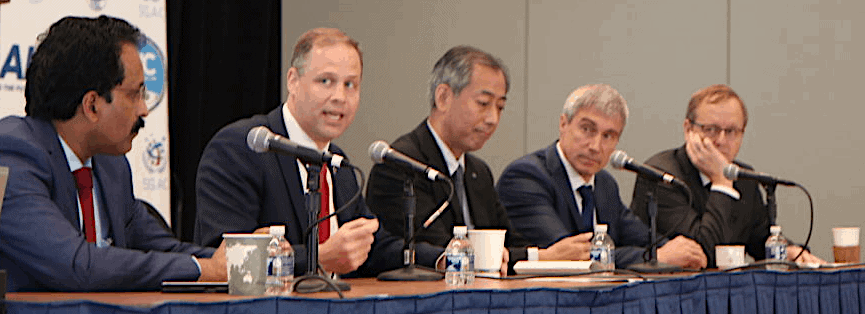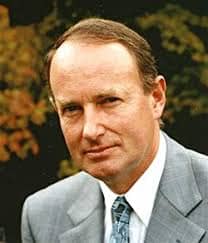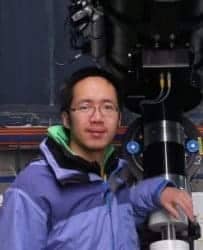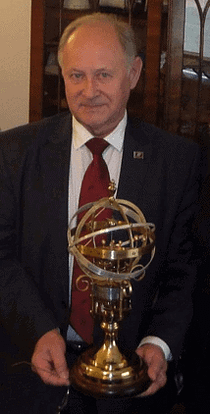This audio recording captures most of the Q&A that took place on Monday 21st October.

21 October Washington DC
The agencies represented included
- S. Somanath, Director, Vikram Sarabhai Space Centre, Indian Space Research Organisation (ISRO), India
- Jim Bridenstine, Administrator, National Aeronautics and Space Administration (NASA), United States
- Hiroshi Yamakawa, President, Japan Aerospace Exploration Agency (JAXA), Japan
- Sergey Krikalev, Executive Director for Piloted Spaceflights, State Space Corporation ROSCOSMOS, Russian Federation
- Johann-Dietrich Woerner, Director General, European Space Agency (ESA)
The audio quality is poor in a few brief instances.
Podcast: Play in new window | Download (Duration: 41:37 — 57.2MB) | Embed


